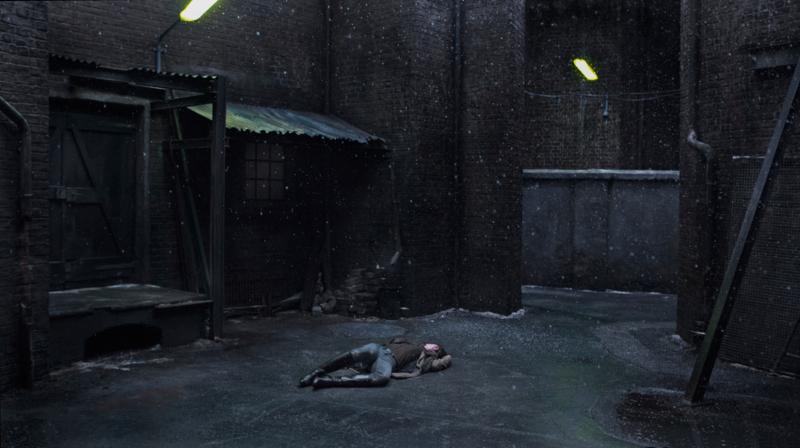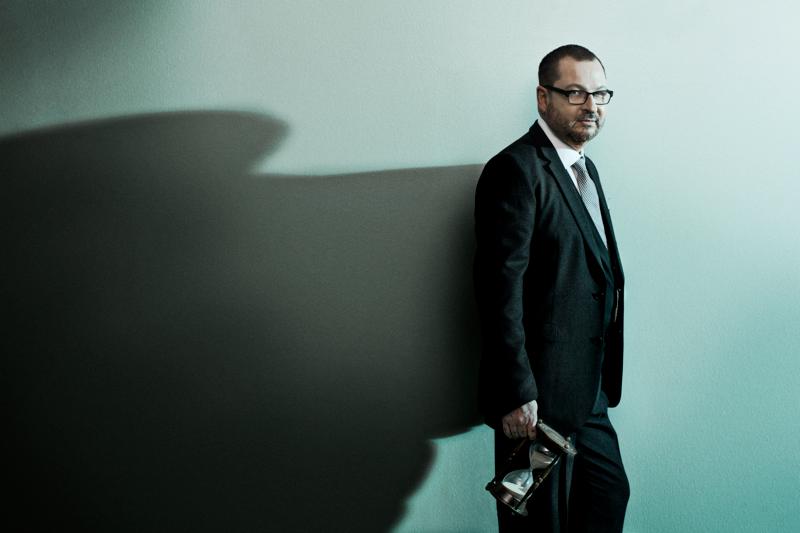Nymphomaniac (2013)
The film tells the story of a woman's journey from birth to the age of fifty as told by the main character, the self-diagnosed nymphomaniac Joe. On a cold winter's evening the old charming bachelor Seligman finds Joe beaten up in an alleyway. He brings her home to his flat where he tends to her wounds while asking her about her life. He listens intently as Joe over the next eight chapters recounts the lushly branched-out and multi-faceted story of her life, rich in associations and interjecting incidents.
Melancholia (2011)
Justine and Michael are celebrating their marriage at a sumptuous party in the home of her sister and brother-in-law. Meanwhile, the planet Melancholia, is heading towards Earth.
Antichrist (2009)
A grieving couple retreat to "Eden," their isolated cabin in the woods, where they hope to repair their broken hearts and troubled marriage. But nature takes its course and things go from bad to worse.
The Boss of It All (2006)
The owner of an IT company wants to sell out. The trouble is that when he established his firm he invented a non-existent company president to hide behind when unpopular steps needed taking. When the potential purchaser insists on negotiating with the "president" face to face, the owner has to take on a failed actor to play the part. Von Trier introduces a style he calls Automavision, a computer technique which limits human influence on image composition.
Manderlay (2005)
The story continues from the point where Grace left Dogville in von Trier's previous film. We follow her and her father as they come to Manderlay, a plantation in Alabama where they witness the horrors and injustice of slavery, which compels Grace to intervene. Selected for Cannes.
Dogville (2003)
The beautiful fugitive Grace arrives in the isolated township of Dogville. With some encouragement from Tom, the self-appointed town spokesman, the little community agrees to hide her and in return, Grace agrees to work for them. However, when the people of Dogville demand a better deal in exchange for the risk of harbouring poor Grace, she learns the hard way that in this town, goodness is relative. Selected for Cannes.
Dancer in the Dark (2000)
Selma, played by Icelandic singer Björk, is a Czech immigrant and single mother working in a factory in rural America. Selma harbours a sad secret: She is losing her eyesight and her son Gene stands to suffer the same fate if she can't put away enough money to secure him an operation. Selma's salvation is her passion for music, the all-singing, all-dancing numbers found in classic Hollywood musicals. But when a desperate neighbour falsely accuses Selma of stealing his savings, the drama of her life escalates.
The Idiots (1998)
In this tragi-comedy, a group of young men and women turn their backs on established society and form a commune in order to cultivate their "inner idiots." They provoke the people around them and themselves by pretending to be retarded. But is there more to their antics than casual role-playing? Only one member of the group, naïve, emotionally unsullied Karen, manages with great bravery to turn the game into deadly earnest. Selected for Cannes.
Breaking the Waves (1996)
In a small patriarchal community on Scotland's rugged Atlantic coast, Bess is considered a good but simple-minded girl, who should not really marry Jan, her oil-rig machinist friend. When Jan is physically disabled in an accident, she succumbs to his wishes of maintaining her sexual life, and tell him about it. When Jan seems to improve, Bess comes to believe that her actions are guided by God and are helping Jan recover, and her sexual behaviour becomes more and more deviant. Cannes Grand Prix winner.
Europa (1991)
In 1945, just after Germany's surrender, Leo, a young American of German descent, wants to be of help in the old Fatherland and signs on as sleeping car conductor with the Zentropa Express company. He soon finds himself turned into a pawn between the power elite and Nazi terrorists gone underground. Prix Technique and shared Special Jury Prize at Cannes 1991. Released in the US as "Zentropa".
Epidemic (1987)
A story of a screenplay-in-the-works about an epidemic that turns real. Europe is facing a disastrous plague. As society collapses, a group of doctors assemble to discuss the crisis. The idealistic doctor Mesmer, played by von Trier, defies the advice of his colleagues and leaves the city in search of a cure. Interwoven with this fictional narrative is the everyday reality of the two filmmakers, von Trier and co-writer Niels Vørsel, as they cast about for ideas. Selected for Un Certain Regard in Cannes.
The Element of Crime (1984)
Von Trier's highly stylised debut feature. Returning to Europe from exile in Cairo, detective Fisher is asked to help investigate a series of murders in which the victims have all been young female ticket sellers. Fisher must immerse himself totally in the psyche of the suspected serial killer, Harry Grey, in order to solve the case and to discern "the element of crime" for himself. Von Trier called his film "the first film noir shot in colour." Winner of the Grand Prix Technique in Cannes.


